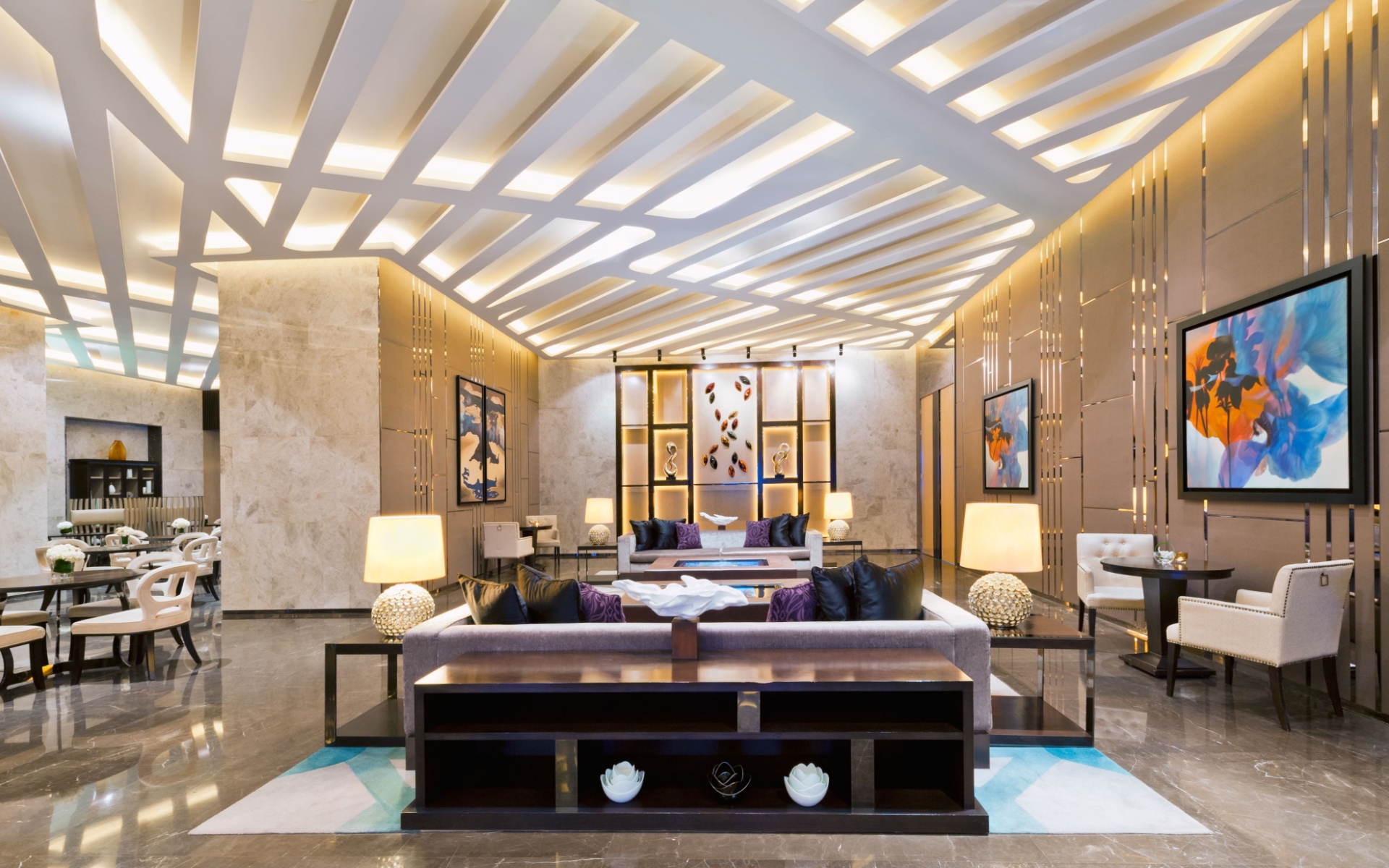
New Technology In Hotels: The Modern Guest Room
Technology is advancing at a faster pace than ever before, and this is changing both the expectations of customers’ and how businesses interact with..
Hotels that invest in technology will be ahead of the curve in terms of guarding their reputation and maximizing profit.
—Justin DeRise
Overbooking, a revenue management strategy practiced by the hotel industry, carries both risks and rewards. It can be a strategic way to maximize occupancy and per-room revenue, but if executed without proper care, it can backfire and cause financial loss and damage to your brand.
This blog will provide an overview of overbooking, including its benefits and potential costs. We will discuss what hotels should do if they suspect they are overbooked, and we will examine the practice of “walking” a hotel guest.
(1)
One constant in the hotel industry, the one thing you can always count on, is the no-show. On any given night there will be a certain percentage of guests who, for whatever reason, never arrive. When last-minute cancellations and no-shows occur, the rooms they had reserved sit empty and become revenue losers.
Consider research published in the Journal of Applied Sciences, which concluded that, on an average night, hotels experience a no-show rate of between five and 15 percent. To protect against a vacant rooms scenario, a hotel might overbook its rooms by up to 15 percent. With a strong U.S. economy, occupancy rates are expected to
climb higher in 2019 — to 66 percent on an average night — than they have in 40 years, said Bjorn Hanson, an adjunct professor at New York University’s Tisch Center of Hospitality. Compare this with 2009, when the hotel occupancy rate on an average night was 54.6 percent, according to the travel research company STR.
If the hotel is located in a major business market, that could mean occupancy rates of 90 percent and higher throughout the year. What this means for hotel operators is that, if you haven’t yet confronted the overbooking dilemma, chances are you will soon.
One of the most common explanations for overbookings is OTAs — online travel agencies like Expedia, Priceline, and now, Google Flights and Hotels. The industry considers them a mixed blessing; hotels of course like the increased revenue, but having to manually update room inventory across the various OTAs takes a good amount of time, and during busy times it sometimes falls through the cracks. When OTAs are not promptly updated, this means the rooms that are advertised may not be available and are prone to being overbooked.
The good news is that technology is available to solve this problem. Software-based, property management systems like StayNTouch can help simplify and automate the management of OTAs.

(2)
When hotels overbook their rooms, they run the risk of having to turn away guestswith confirmed reservations. When that happens, it’s called “walking.”
A hotel employee must bear the brunt of the customer’s anger and then “walk” the displaced guest to another property at the hotel’s expense. Overbooking can be stressful for all parties involved, including the front desk, your revenue and marketing team, and most importantly, your guest who arrived with certain expectations. This pattern of booking one hotel guest as an
insurance policy — in the expectation that another guest might not show up — can cause a good deal of anxiety for staff, where they essentially become players in a game of “overbooking roulette.” The truth is, it happens a lot more than you might think, though for good reason hotel operators keep mum about it.
(3)
When you first suspect you are overbooked,

follow these steps to ensure that any risk to your hotel’s brand and bottom line is averted.
(4)
The initial step is to double check that a guest relocation is required. You want to ensure that your property is in fact fully occupied.
Consult your guest-arrival list to make sure there wasn’t a booking mistake, duplicated reservation, or cancellation. Assuming you’ve checked for errors and found none, your next step is coming up with a strategy. Consider how many
incoming reservations you have for the day and how many no-shows or cancellations you expect. For example, if you typically experience one last-minute cancellation per day, and you only have one overbooking, it may not be a crisis situation.
Assuming you’ve checked for errors and found none, your next step is coming up with a strategy.

(5)
How will you determine which guests can be “walked” and which must not be inconvenienced?
Begin by analyzing your bookings to determine who is a suitable candidate for relocation. Other factors to take into account include the source of the booking, when it was made, the duration of the reservation, and any fee agreements
or penalties from third parties. Most hotels have a checklist of criteria they use to analyze their bookings. In general, guests booked for short-term stays, such as business travelers, are typically chosen for relocation.
(6)
If relocating — or “walking” the guest — is determined to be necessary, the next step is to rebook the customer at a comparable property.

This is not a time for pinching pennies. How your employees conduct themselves at this stage, and the decisions that they make, will be critical.
Ideally, you have a pre-existing relationship with other local hotels that offer comparable quality, guest experience, and location; begin contacting them to determine if they have vacancies. You will want to inquire if they have a similar room available and if they will entertain the same rate that you had quoted the guest. If you can, be
proactive and contact the guests before they arrive and apprise them of the situation. If you can arrange for their relocation to another hotel before they arrive at the front desk, things will go much more smoothly.
The job of the hotel staff is not just to book another hotel, but to be a source of information and a comfort to the guest. Err on the side of over-communicating: Make sure they know exactly where they are being relocated and reassure them that it is a safe and attractive hotel.

(7)
Those guests who have been walked to other properties have the potential to do serious damage to your brand.
In our hyper-connected world, displaced guests who were treated poorly can post negative online reviews, share their frustrations with their peers, and refuse to stay at your hotel in the future — all of which hurts your brand reputation and bottom line.
To avoid this scenario, hotels must bend over backwards to please and placate guests they overbooked. As bad as it may sound, this is actually a chance to shine; with the right attitude, you can turn a potential crisis into an opportunity by demonstrating concern for your
guest’s well-being and providing top-tier customer service. When all is said and done, what your guests will remember is how your team handled the situation.
At the very minimum, you should cover the cost of a one-night stay at a similar hotel, internet access, and the cost of an Uber. Be clear in communicating exactly what your compensation will entail. Hotel staff are often empowered to offer additional perks such as a complimentary meal, upgrades for future visits, gift cards, or free tickets to a show.
Loyalty club members should receive special consideration. If possible, exclude them from your list of potential relocations. If they have to be walked, see if you can give them additional benefits through your loyalty program.
The case of Marriott International is a good example of using a loyalty program to help compensate guests and ease their pain after the hotel was forced to walk them. Through its Marriott Bonvoy loyalty program, the hotel offers most members who were walked a cash gift card plus loyalty points. Other properties have offered some loyalty program members $200 in cash in addition to 90,000 points.
(8)
Booking cancellations adversely affect hotels’ ability to accurately forecast their occupancy and revenue levels. This is one reason we are seeing hotels adopt overbooking practices and more stringent cancellation policies.
Hotels have begun penalizing guests for their flakiness. According to Lodging Magazine, revenue that hotels received for cancellations and no-shows increased by almost 12 percent annually on average from 2012 to 2016.
Hotels and resorts that lack real-time, actionable data will struggle to make strategic decisions and achieve their occupancy and revenue goals.But with the right technology and data sets, hotels can actually predict with great accuracy which guests are most likely to cancel. Having this data at their fingertips reduces overbooking and enables them to better anticipate cancellations and no-shows.
Hotels that invest in technology will be ahead of the curve in terms of guarding their reputation and maximizing profit.
Tracking your bookings and cancellations manually is time-intensive and prone to error. Software-based, hotel property management systems like StayNTouch enable hotel operators to review bookings and occupancy levels in real time and make sound, data-driven decisions that drive their bottom line.
This doesn’t mean that you won’t ever overbook or walk a guest again — you will. That’s just the nature of the business. But when you do, it will be on your terms.
Does your hotel or resort have a strategy in place for dealing with overbooking? Learn how to overbook the strategic way by signing up for our free webinar.

Technology is advancing at a faster pace than ever before, and this is changing both the expectations of customers’ and how businesses interact with..

Social Media Serves Up Hotel Restaurant Sales! Great article on pros and cons of new Social Media use to increase hotel restaurant revenues, by hotelinteractive.com,

If airlines are experimenting with social seats, should hotels take off with social staying? SeatID a startup providing social seating to airlines has created an infographic


See how StayNtouch’s Cloud PMS, Guest Mobility, and Guest Kiosk solutions deliver better results for hotels through better front & back of house communication, increased mobile touch-points, more revenue and operational efficiency, and unlimited interfaces.
Your demo will include how to:

Manage and Set Tasks Across Your Departments

Ensure Guest Satisfaction & Safety With Contactless Check-in Options

Automate Easy Upsells & Monetized Early/Late Checkouts

Set & Manage Rates/Availability

Integrate With Tools and Platforms Essential
to Your Hotel
And More!